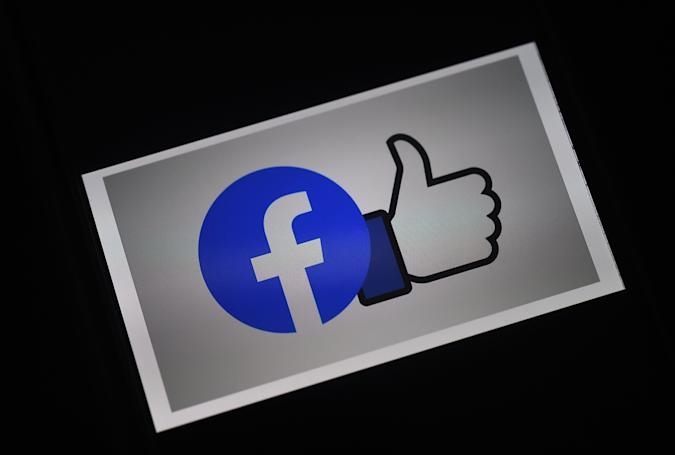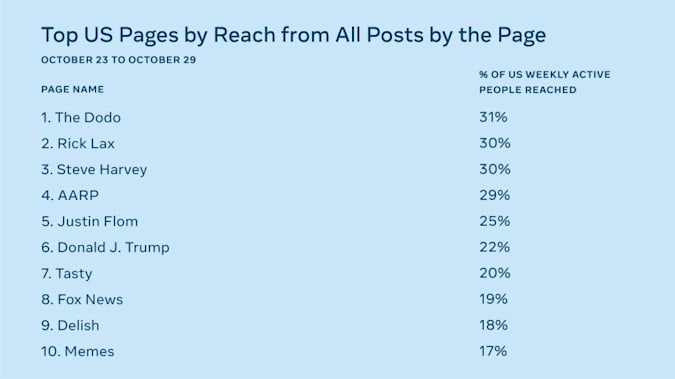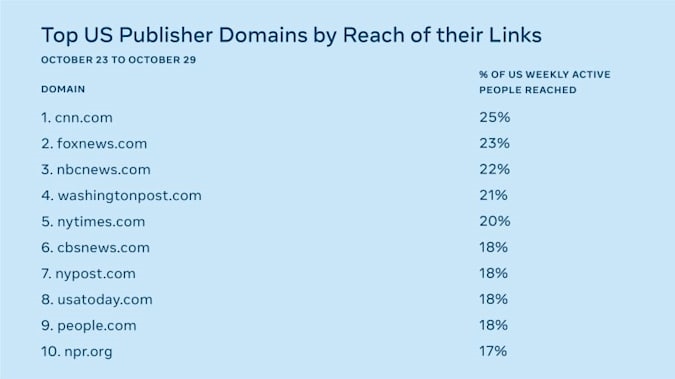Facebook claims most users don’t see that much political content
The company tried to explain what people ‘actually see.’


In a new post from Facebook’s VP of Analytics Alex Schultz, the company argues that most of the posts users see have nothing to do with politics. “based on our analysis, political content makes up about 6% of what you see on Facebook,” Schultz writes. “This includes posts from friends or from Pages.”
Schultz also pushed back on journalists’ use of data from Facebook-owned analytics tool CrowdTangle, which identifies the posts from pages that get the most engagement (reactions, comments and shares) at any given time. Though these metrics may be indicative of what’s popular on Facebook, Schultz says it’s not necessarily an accurate representation of what most Facebook users actually see.
“This tool was built to help people get some idea of what content will get likes, comments and reshares,” Schultz writes. “But it is not designed to show what is being seen the most.”
Instead, Schultz argues that “reach” — the posts that show up in front of the highest-number of users — is a more accurate measure of what most people see on the social network. Though CrowdTangle doesn’t provide this data, and Facebook doesn’t typically make it available to reporters, he shared some stats on the highest-performing Facebook pages by reach during the week before the election.

Among the top pages by reach: purveyor of cute animal videos The Dodo, magician Rick Lax, Family Feud host Steve Harvey and the AARP. Meanwhile, the top publisher domains by reach during the same week were cnn.com, foxnews.com, nbcnews.com. washingtonpost.com, and nytimes.com.
All of this may sound like a lot hair splitting: most users likely don’t care too much whether a given post has a higher “reach” or higher “engagement.” But for Facebook it’s an increasingly important distinction. The company has faced criticism for not doing more to fight polarization, despite research that its algorithms exploit “divisiveness.” And the posts ranked by CrowdTangle, which measures “engagement,” often reflect more divisive content rather than the mainstream news and mostly-wholesome pages listed by Facebook as getting the biggest “reach.”

On the other hand, the reason why reporters and researchers use CrowdTangle is because it’s one of the few ways outsiders can gain visibility into how content moves around the social network. And CrowdTangle doesn’t provide any insight into the “reach” metric Facebook now says is a better measure of its platform. And, as New York Times reporter Kevin Roose points out, unless Facebook starts making this information more readily available, it’s difficult to gauge which pages and publishers are really getting the most eyeballs.
When it comes to 2020 election-related content, we may one day know more. Schultz says Facebook plans to work with outside researchers to analyze “what happened on Facebook during this election cycle,” with research papers on the issue expected some time in 2021.
(33)